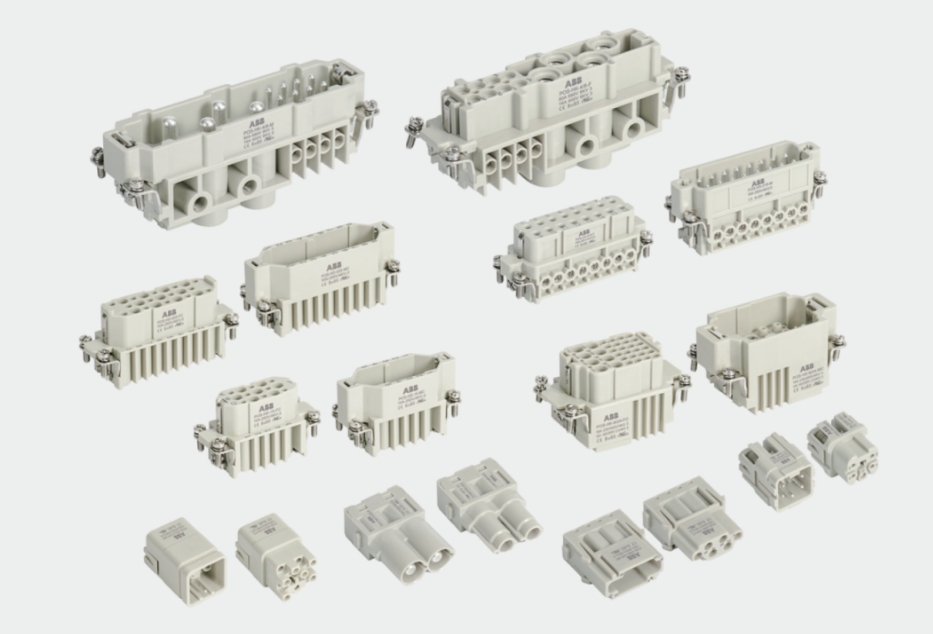Driven by the global trends of flexible manufacturing and Industry 4.0 in the industrial sector, modular design and efficient electrical connection technologies have emerged as critical pillars for manufacturing transformation and upgrading. Recently, ABB, a global leader in electrical and automation solutions, has unveiled its innovative Pos-E-Kon Heavy-Duty Connector (HDC), delivering exceptional performance to address connectivity challenges in harsh industrial environments and injecting new technological momentum into fields such as rail transportation, industrial automation, and equipment manufacturing.
Industry 4.0 Drives Connectivity Technology Innovation
As Industry 4.0 advances deeper, the manufacturing sector's demand for modular and flexible equipment production has surged. Traditional wiring harness connections, plagued by complex installation, high maintenance costs, and insufficient reliability, struggle to meet application requirements in high-load, high-vibration, and extreme-temperature conditions. Dr. Gang Dong, Head of Installation Products at ABB Electrical China, emphasized: "Wiring harnesses are the 'nerves and blood vessels' of industrial equipment, with their stability directly impacting production efficiency and safety. Heavy-duty connectors systematically resolve the pain points of traditional wiring harnesses through highly integrated design."

Pos-E-Kon Heavy-Duty Connectors Solve Industry Challenges
ABB's newly launched Pos-E-Kon Heavy-Duty Connectors feature modular design as their core strength, covering four major types: power, signal, data, and hybrid transmission. They are tailored for critical applications such as robotic systems, wind power equipment, and construction machinery. Their rectangular structure offers greater flexibility than traditional circular connectors, supporting user-defined module combinations and enabling "plug-and-play" convenience. The product has obtained international certifications including CE, UL, and RoHS, boasting anti-misinsertion, shock-resistant, and corrosion-resistant properties. These features significantly reduce the risk of on-site wiring quality issues and enhance equipment operational stability.
According to Dr. Dong, the product has passed the EN45545-2-HL3 fire safety certification for rail transportation and optimized rapid plugging/unplugging and blind-mating functions for industrial automation scenarios, allowing non-specialists to independently perform maintenance tasks. This innovation not only streamlines installation processes but also reduces downtime, helping enterprises cut costs and boost efficiency.

Innovating the Future of Smart Manufacturing
"The launch of Pos-E-Kon marks a milestone in ABB's continuous (deep cultivation) of the industrial connectivity sector," Dr. Dong stressed. ABB regards "product innovation" as its core strategy and will focus on addressing customer and industry pain points to deepen applications of heavy-duty connectors in emerging fields such as new energy and smart cities. Data indicates that the global heavy-duty connector market is projected to grow at an average annual rate of 6.3%, and ABB is accelerating its penetration into the high-end market through technological advancements and localized services.
As the era of industrial connectivity unfolds, Pos-E-Kon heavy-duty connectors are poised to become a critical link connecting devices and systems, driving smart manufacturing and sustainable development. ABB stated that it will continue empowering industrial upgrades through technology, offering global industrial customers more efficient and reliable electrical connectivity solutions.
From flexible production to applications in harsh environments, the release of ABB's Pos-E-Kon heavy-duty connectors not only showcases the company's profound expertise in electrical connectivity technologies but also underscores its determination to drive industrial transformation through innovation. Amid dual opportunities in smart manufacturing and energy transition, this "new powerhouse in industrial connectivity" may reshape the competitive landscape of the global industrial chain.